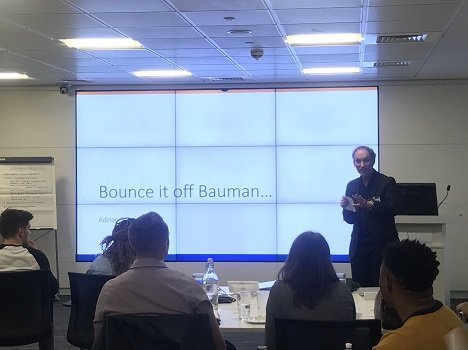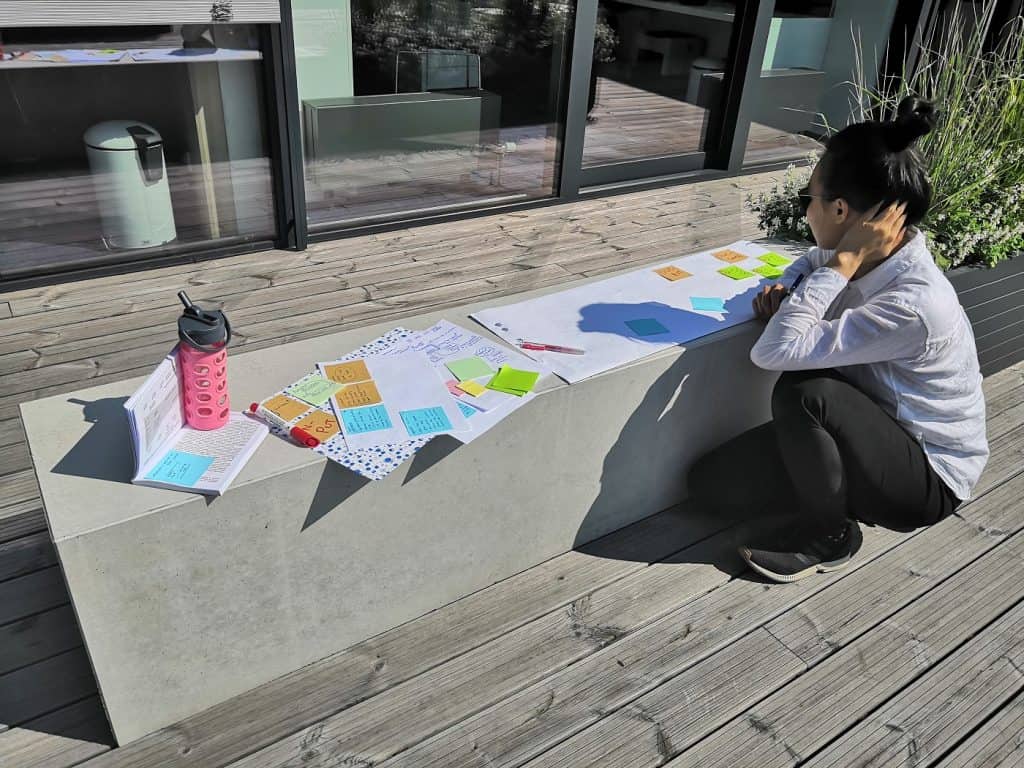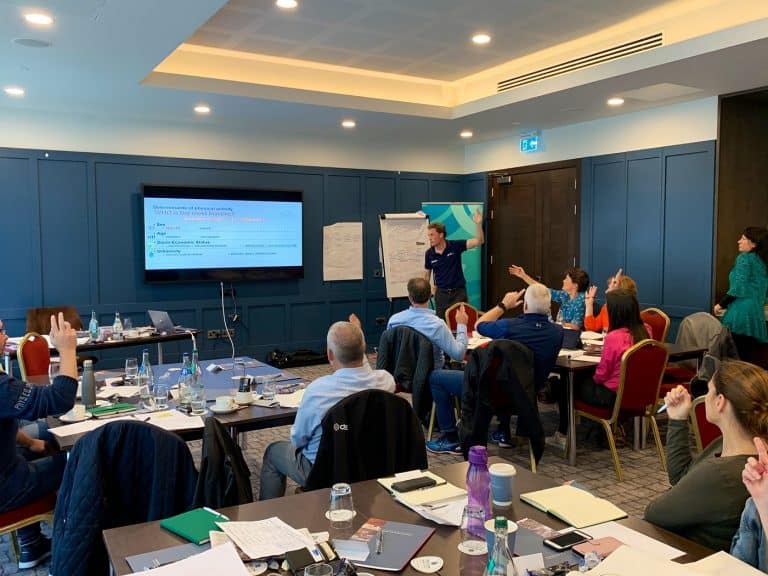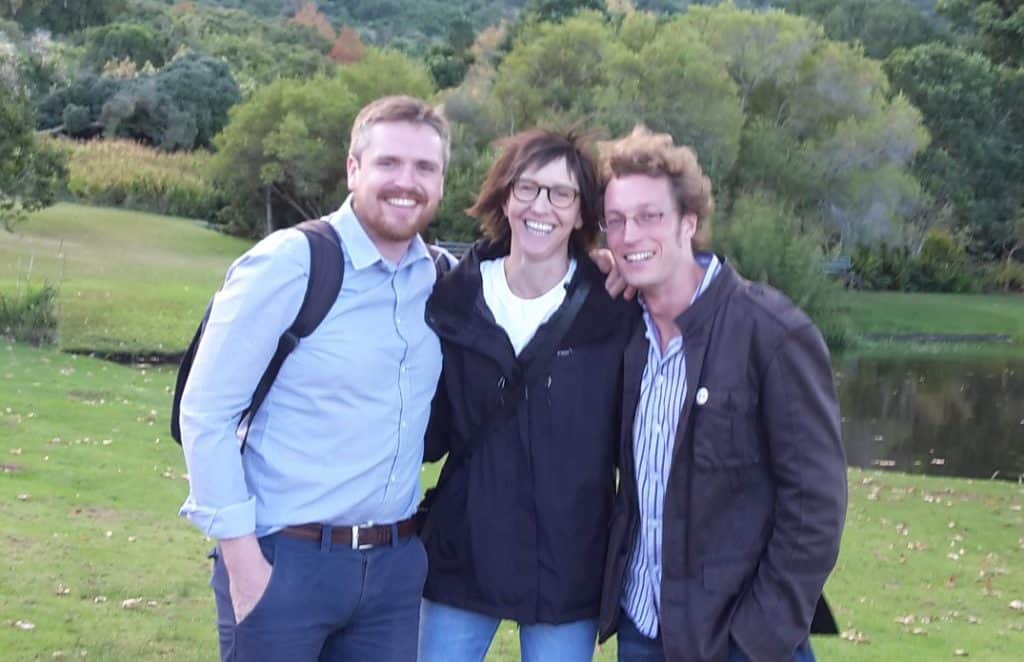The Course
Overview
“Pragmatic Evaluation in Physical Activity and Health” is a charitable organisation that was formed by its Co-Directors (Dr Paul Kelly, Dr Karen Milton, and Dr Justin Richards) in 2015 to meet an identified need in the sector globally.
While some training courses were available in physical activity and health, these courses mainly focused on topics such as epidemiology and measurement. Prior to the establishment of Pragmatic Evaluation, there were no courses specifically designed to build capacity in evaluation of physical activity initiatives.
Since its establishment, “Pragmatic Evaluation in Physical Activity and Health” has developed two types of courses that have been adapted to the needs of the target audience.


programme
The first of these is a 3-day course that brings together physical activity researchers, practitioners and policy makers. Attendees are selected through a competitive application process that identifies a group of 15-30 participants most appropriate for the course content and ongoing collaboration. Scholarships are made available to ensure these courses are globally accessible.
The second is a tailored 3-day course commissioned by relevant organisations interested in improving evaluation capacity and quality. Attendees are selected by the host organization to be a group of participants most appropriate for the course objectives. The number of participants is dependent on the needs and objectives of the host organization.
Content
We tailor the content to meet the needs of each course, but previous courses have covered the following topics:
- Planning for Evaluation
- Formative Evaluation (including logic models)
- Evaluation Design
- Process Evaluation
- Outcome/Impact Evaluation
- Mixed methods
- Complex Programme Evaluation


What do you get?
Our courses generally include:
- The 2-3 days of face to face training
- Combination of individual and group tasks to achieve learning outcomes
- Learning and networking with experts and fellow participants
- A copy of the textbook ‘Evaluation in a Nutshell’ by Adrian Bauman and Don Nutbeam
- A certificate of completion
- Access to our members area of the website where we share resources and network with course alumni
- PDF of the full course slide set after the event
Frequently Asked Questions
We aim to have a diverse group of researchers, practitioners and policy makers on our courses. Broadly, we think the course is relevant to anyone who is planning, conducting, commissioning or utilizing evaluation in physical activity or sport.
We strongly encourage applicants from low, middle and high-income settings to apply. If you are not sure if the course is for you please contact us and we would be happy to chat.
The course fee varies based on local costs. We give the cost in NZD as that is where we are a registered as a not-for profit charitable entity and conduct our banking. In 2019 (our most recent course) the cost was NZ$1550. This fee does not include accommodation costs.
Course fees include course materials, lunches and dinners on each day of delivery, refreshments, and a copy of Evaluation in a Nutshell textbook. Participants are required to organise their own travel and accommodation and cover these costs themselves.
We have previously made scholarships available for people who are accepted onto a course, but unable to cover the costs of attending. Requests for scholarships are handled on a case-by-case basis
Our standard model is 2.5-3.0 days. We generally aim to match typical working patterns in the host country in terms of start and end times. There is usually an informal and optional dinner each evening (according to local facilities) for networking, socialising and reflection on the day’s content.
A basic understanding of and/or professional experience in physical activity, exercise, sport and health is likely to make the course far more relevant. As a guide, participants usually have 2-10 year’s experience across policy, practice or research/academia.
Participants bring a broad range of experiences from across the physical activity sector and this mix is a key part of the learning that happens during the course. If you have any concerns about whether your experience level is appropriate, please contact us.
Once a course becomes available, we will email registered candidates with a link to the application. If you are interested in registering your interest for the next course, please register here. We aim to open applications 3-4 months in advance. You are asked to complete an application form that includes describing an evaluation you are working on (or plan to work on in the future).
We assess all applications against established criteria and inform applicants if they have been accepted. For courses where we receive more strong applications than we have places, applicants may be placed on a waiting list, in case anyone withdraws.
It is a competitive process and we encourage you put time into preparing your application (historically approximately 60% of applicants have been successful).
The Pragmatics
The course is delivered by ‘The Pragmatics’ (Paul, Karen and Justin) and international colleagues. The additional faculty varies by course depending on location and availability. Where possible we invite local experts to join the faculty to present context specific case studies.
The course is ideal for academic researchers who are interested in the practical application of their work and/or for employees of government and non-government entities who aspire to rigorously evaluate their programs and policies or who wish to understand how to work most effectively with external evaluation partners.

previous courses

Edinburgh, UK

Cape Town, South Africa

Vancouver, Canada

Wellington, New Zealand

Dublin, Ireland

Doha, Qatar

Bangkok, Thailand

London, UK

Olomouc, Czech Republic
REGISTER TODAY
Complete our online registration and gain insight in to our next available course and relevant course details.
CONTACT US
We are always open to a conversation about our courses and happy to help in any way we can.